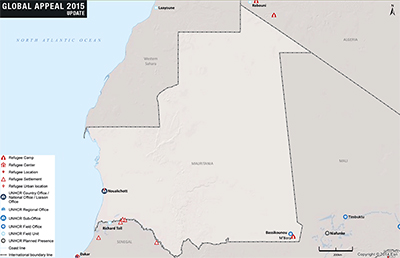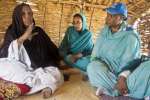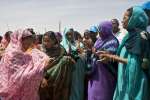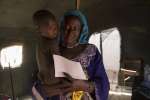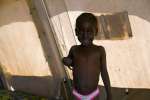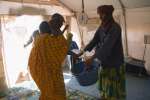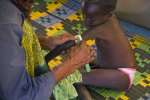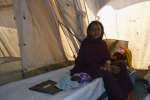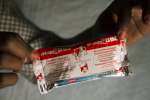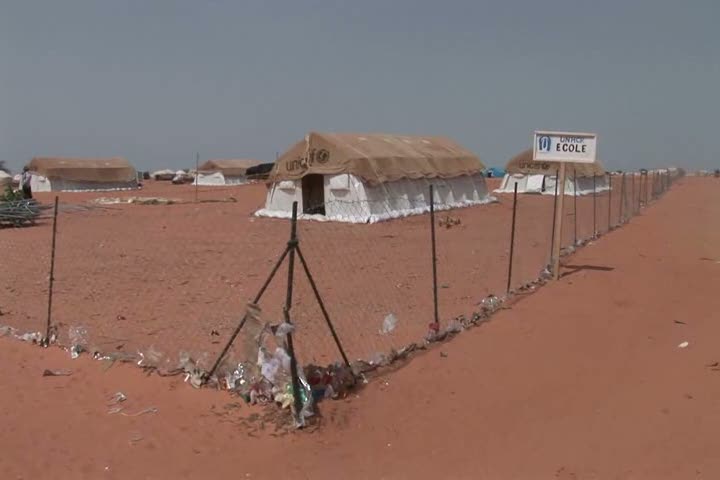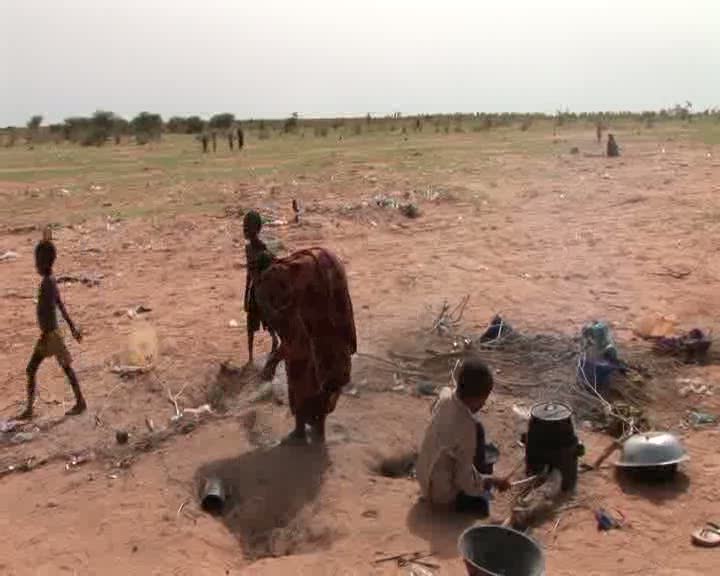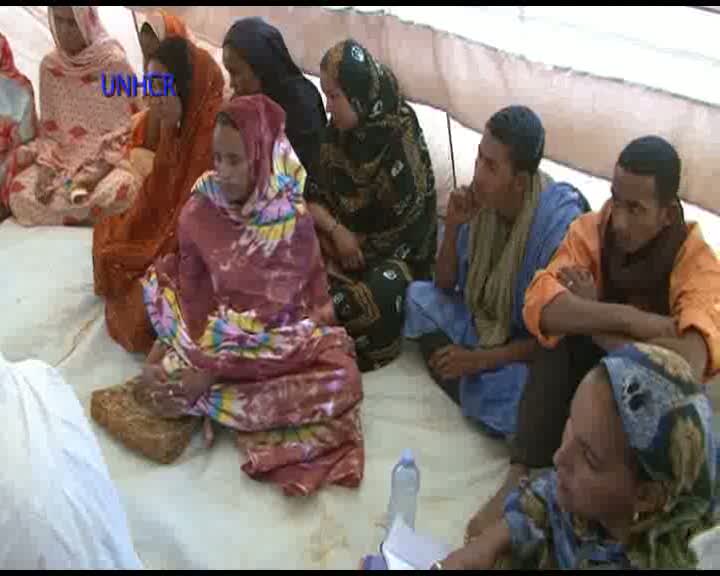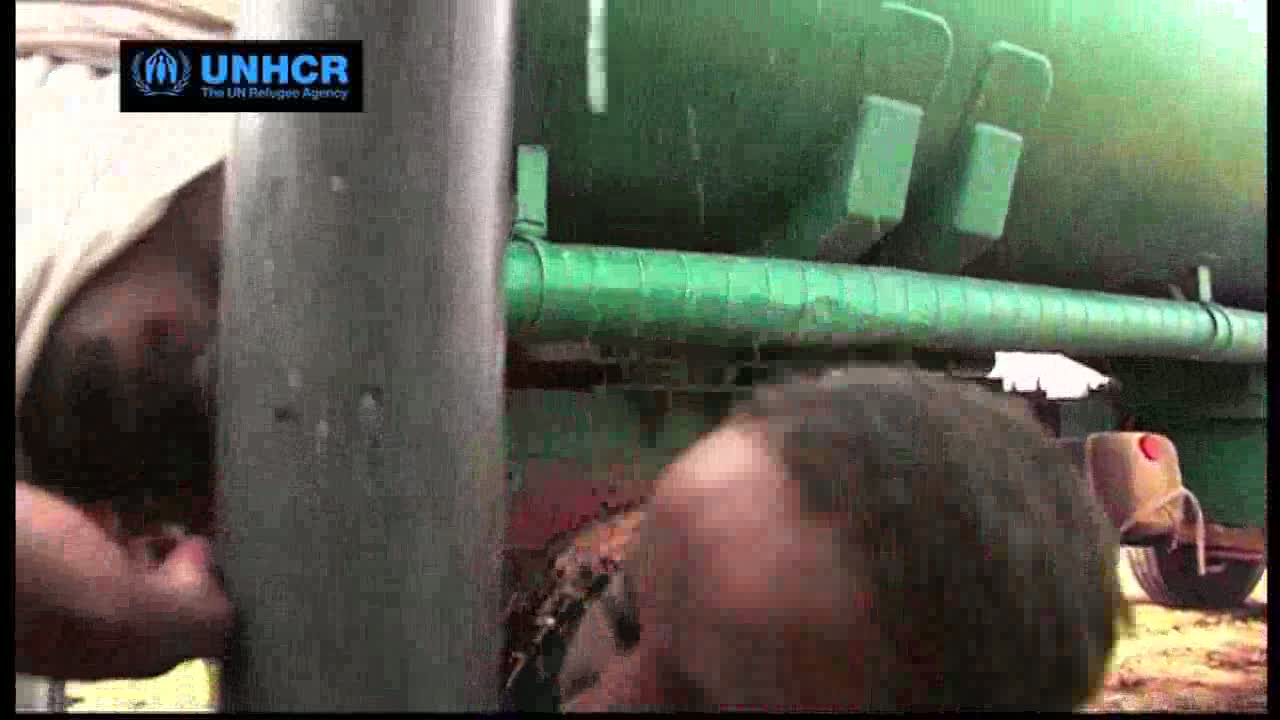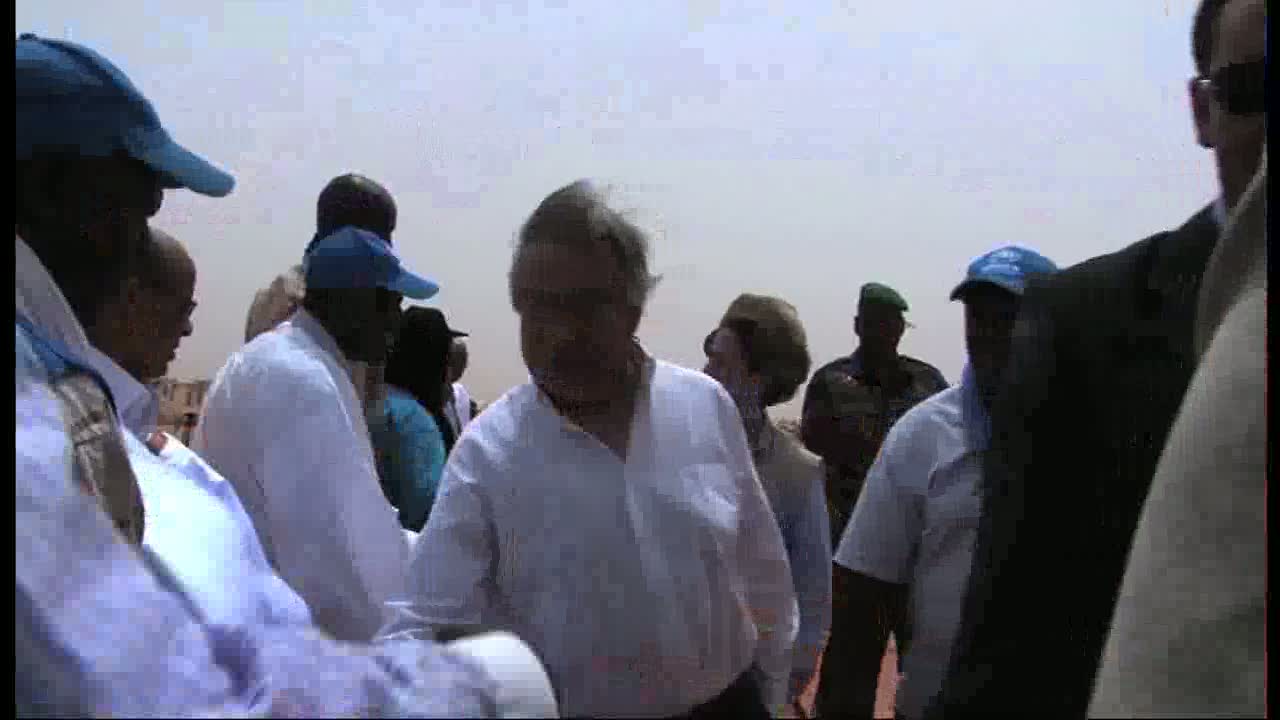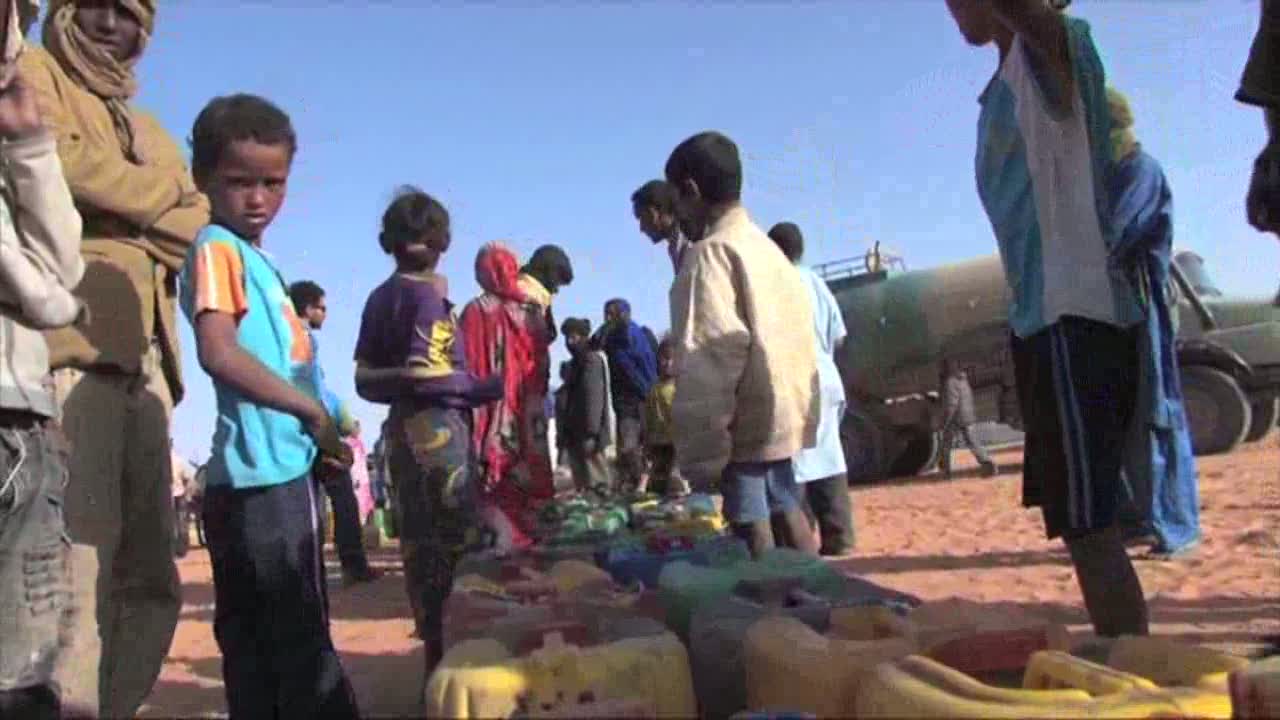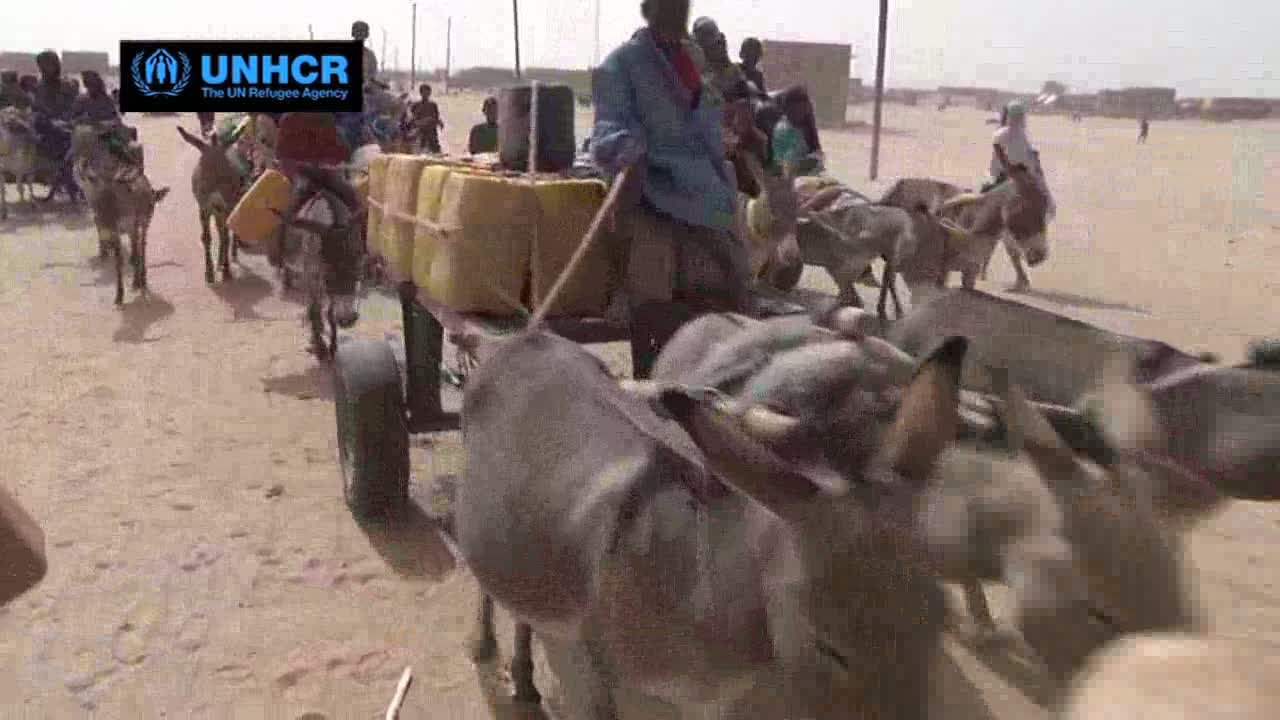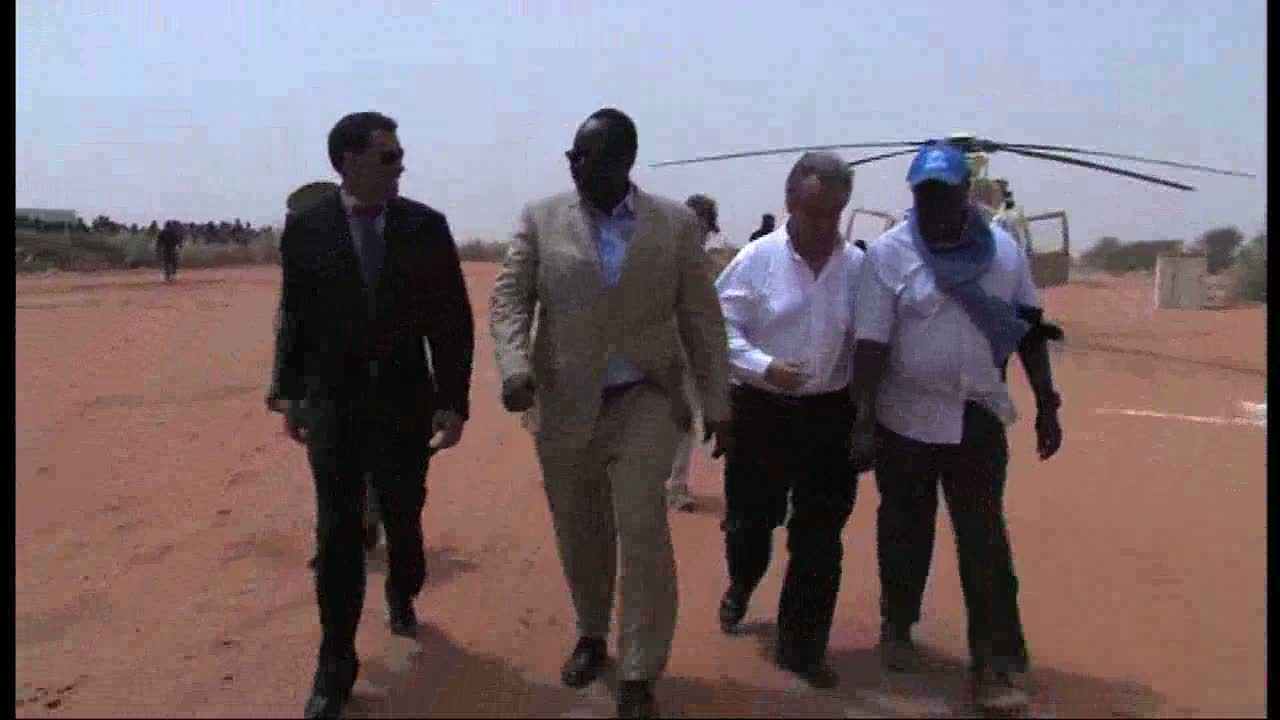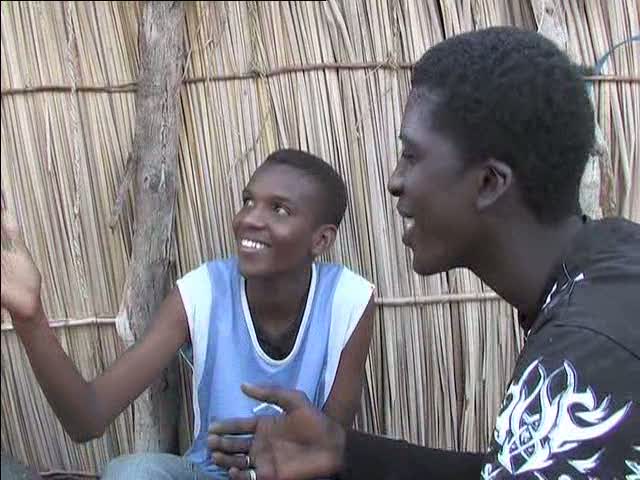Home > Where We Work > Middle East and North Africa > North Africa > Mauritania
2015 UNHCR country operations profile - Mauritania
| Overview |
Working environment
-
In 2015, UNHCR will protect and assist some 48,000 people of concern in Mbera camp, located some 50 km from the Malian border in a remote, arid and poor area.
-
Mauritania is party to the 1951 Refugee Convention and its 1967 Protocol, and is developing a national asylum system, with UNHCR's assistance.
-
The Government provides land for Mbera camp and security for Malian refugees and humanitarian workers. It facilitates access to basic services for urban refugees.
-
In the absence of a national asylum system, UNHCR conducts registration and refugee status determination (RSD); works to strengthen the asylum capacity of national authorities; provides assistance targeting refugees with specific needs; and seeks durable solutions for refugees.
-
The situation in northern Mali remains fragile, preventing mass returns of refugees residing in Mauritania. While there were more than 2,000 spontaneous returns in 2013, the first half of 2014 witnessed just 418. Consultations with the refugees indicated that the majority remain opposed to return until certain conditions are met.
-
Verification and biometric registration in Nouakchott and Nouadhibou revealed there were 523 refugees and 687 asylum-seekers registered with UNHCR at the end of August 2014. In addition, some 26,000 Sahrawi people were considered to be in a refugee-like situation. They have not approached UNHCR as they are well integrated in Mauritania.
People of concern
The main people of concern to UNHCR are the Malian refugees settled in Mbera camp, as well as urban refugees and asylum-seekers who are mostly from sub-Saharan African countries and reside in Nouakchott and Nouadhibou. Should conditions allow for their individual return, Mauritanian returnees from Senegal have also been identified by UNHCR as potential people of concern.
| UNHCR 2015 planning figures for Mauritania | |||||
|---|---|---|---|---|---|
| Type of population | Origin | January 2015 | December 2015 | ||
| Total in country | Of whom assisted by UNHCR |
Total in country | Of whom assisted by UNHCR |
||
| Total | 75,120 | 49,120 | 71,110 | 45,110 | |
| Refugees | Dem. Rep. of the Congo | 100 | 100 | 120 | 120 |
| Côte d'Ivoire | 300 | 300 | 350 | 350 | |
| Mali | 48,000 | 48,000 | 36,000 | 36,000 | |
| Various | 200 | 200 | 270 | 270 | |
| People in refugee-like situations | Western Sahara | 26,000 | - | 26,000 | - |
| Asylum-seekers | Dem. Rep. of the Congo | 60 | 60 | 50 | 50 |
| Côte d'Ivoire | 350 | 350 | 200 | 200 | |
| Syrian Arab Rep. | 30 | 30 | 40 | 40 | |
| Various | 80 | 80 | 80 | 80 | |
| Returnee arrivals during year (ex-refugees) | Mauritania | - | - | 8,000 | 8,000 |
| Response |
Needs and strategies
The situation in northern Mali remains fragile and is unlikely to allow a large-scale return of Malian refugees residing in Mauritania in the short to medium term. UNHCR and its partners will therefore continue to maintain a humanitarian response for some 48,000 Malian refugees in Mbera camp.
The camp now has basic infrastructure and refugees can access essential services, such as health, water, sanitation and education.
In 2015, UNHCR and partners will continue covering refugees' essential protection and assistance needs. Emphasis will be put on strengthening Malian refugees' self-reliance and improving their social and economic well-being, by investing more in education, vocational training and livelihood support.
Efforts to promote peaceful coexistence between the refugees and host population will be enhanced and UNHCR will implement community-based projects in refugee areas. Awareness sessions between refugee and host-community leaders will encourage dialogue and promote non-violent conflict management and resolution.
The volatile security situation in northern Mali requires emergency preparedness measures to ensure a rapid response to any new refugee influx.
Since the establishment of biometric registration in Mbera camp in April 2013, efforts have been ongoing to effectively manage refugee data. In 2015, UNHCR will continue to regularly update its database, to provide accurate population data, and produce disaggregated refugee population statistics. This will help to adapt humanitarian interventions to refugees' needs and to target activities at the most vulnerable.
To protect and assist urban refugees and asylum-seekers, UNHCR will continue to advocate the adoption of a national asylum law and the provision of civil status documentation for refugees, particularly birth certificates for refugee children born in Mauritania. The Office will continue to conduct registration and RSD, while building the authorities' capacity to deal with asylum issues.
Given urban refugees' difficult social and economic conditions, UNHCR will continue covering their basic necessities, focusing on individuals with specific needs.
In parallel, it will scale up activities, such as literacy classes, vocational training and micro-finance projects, while a durable solution is sought.
Some 13,000 Mauritanian refugees who did not join the voluntary repatriation operation completed in March 2012 are registered in Senegal. Of these, some 700 have expressed the wish to return to Mauritania. Once an agreement on the future of Mauritanian refugees in Senegal is reached with Mauritanian and Senegalese authorities, UNHCR will help facilitate individual returns.
| Implementation |
Coordination
At the request of the Mauritanian Government, UNHCR coordinates the humanitarian response to the Malian refugee situation, in close collaboration with the Ministry of the Interior and Decentralization and a follow-up committee appointed by the authorities.
It also participates in the UN Country Team and Humanitarian Country Team, and works with UN agencies such as OCHA, UNICEF and WFP, as well as national and international NGOs. Regular coordination meetings are held in Nouakchott and Bassikounou.
In 2015, UNHCR will work with the Educate A Child initiative to provide primary education to Malian refugee children in Mbera camp.
| 2015 UNHCR partners in Mauritania |
|---|
| Implementing partners |
| Government agencies: Agence nationale du registre des populations et des titres sécurisés, Commission for Food Security, Ministry of the Interior and Decentralization |
| NGOs: Acción contra el Hambre España, Association pour la lutte contre la pauvreté et le sous-développement, INTERSOS, the Lutheran World Federation, ONG Actions, SOS Désert |
| Operational partners |
| NGOs: Adventist Development and Relief Agency, Appui au développement intégré des communautés rurales, Association mauritanienne des droits de l'Homme, Association mauritanienne pour la promotion de la famille, Ensemble pour la solidarité et le développement, Médecins Sans Frontières - Belgium |
| Others: ICRC, IOM, Mauritanian Red Crescent, OCHA, OHCHR, UNDP, UNFPA, UNICEF, UNV, WFP, WHO |
| Financial information |
The financial requirements for UNHCR's Mauritania operation in 2015 amount to USD 24.4 million. This represents a slight increase in comparison with the initial 2014 budget for Mauritania, that will enable UNHCR to protect and assist almost 50,000 people in camps and urban areas.
The Malian refugee programme in Mauritania has been selected as a recipient of the UNHCR Seeds for Solutions initiative for 2014-2016. While this funding will cover, in part, solutions-oriented activities, resources will still be needed to meet refugees' basic needs in the short-to-medium term. Despite significant efforts to reach humanitarian standards, some sectors (such as nutrition and education) remain below standard. Without available resources, progress made will not be sustained and standards not attained in critical sectors.
Source: UNHCR Global Appeal 2015 Update
UNHCR contact information
| UNHCR Represenatation UNHCR in Mauritania | |||||||||||||||
|---|---|---|---|---|---|---|---|---|---|---|---|---|---|---|---|
| Style of Address | Represenatation UNHCR Nouakchott | ||||||||||||||
| Street Address | Ilot K No. 143, Route de la Corniche, Nouakchott, Mauritania | ||||||||||||||
| Mailing Address | B.P. 4405, Nouakchott, Mauritania | ||||||||||||||
| Telephone | 222 5 257 415 | ||||||||||||||
| Facsimile | 222 5 256 176 | ||||||||||||||
| mauno@unhcr.org | |||||||||||||||
| Time Zone | GMT + 0 | ||||||||||||||
| Working Hours |
|
||||||||||||||
| Public Holidays | 01 January 2015, Jour de l'an 02 January 2015, Maouloud 01 May 2015, fete du travail 17 July 2015, fete d'el fitr 24 September 2015, fete id el adha 25 September 2015, Lendemain id el adha 15 October 2015, fete du nouvel an Musulman 30 November 2015, fete de l'independence 24 December 2015, maouloud 25 December 2015, Noel |
||||||||||||||

